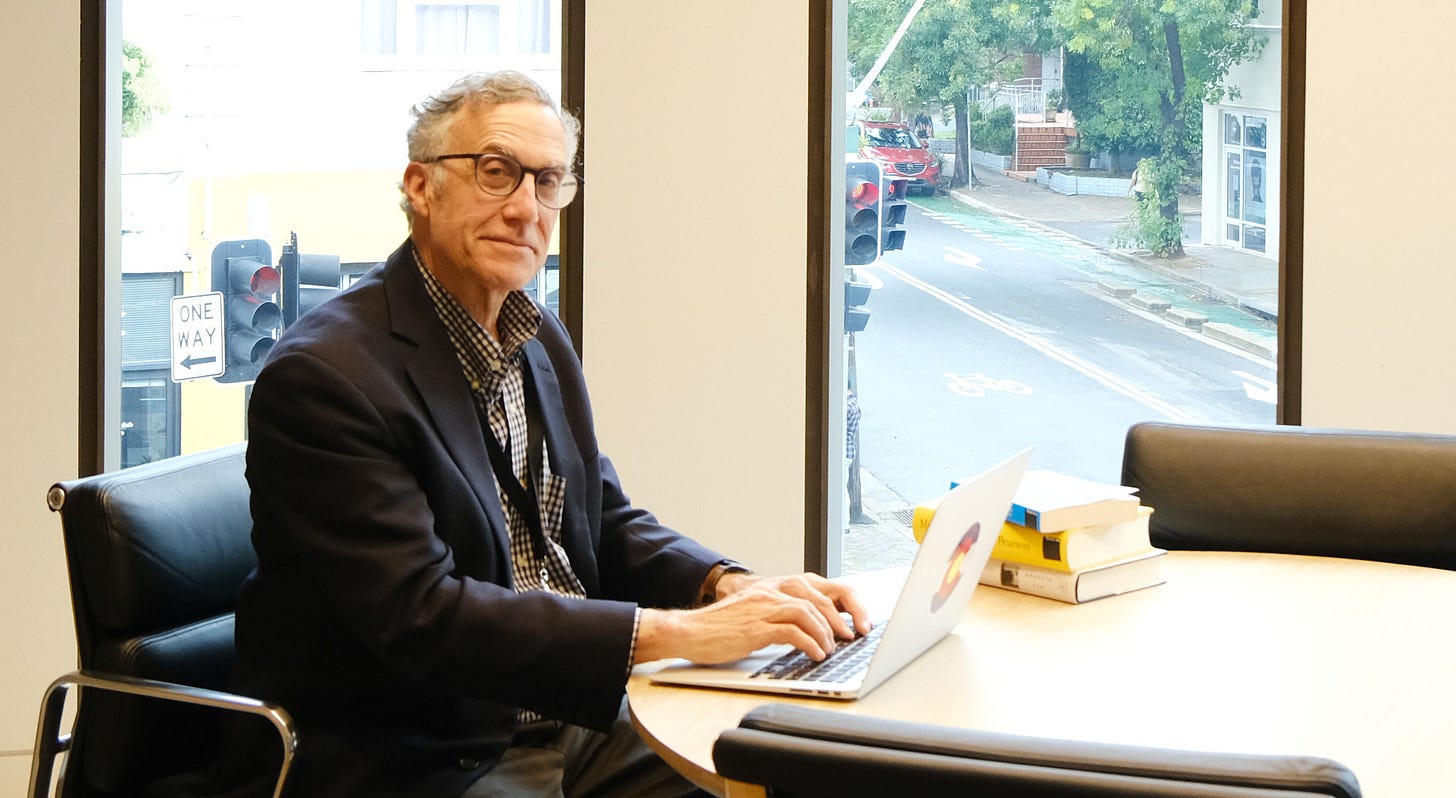Hello everyone,
Today in the Crawford Media podcast I have a conversation, recorded last week, with visiting US journalist and professor Bill Grueskin. Grueskin is in Sydney at the invitation of the Judith Nielsen Institute (JNI) to engage with Australian journalists and educators - delivering lectures and sitting on panels - and to investigate the Media Bargaining Code. The code, you will recall, passed into Australian law a year ago amid much clamour and has subsequently lain dormant while Google and Facebook finalised deals with big and medium-sized Australian media organisations.
It is a measure of how significant the code is as an international precedent that someone like Grueskin has turned up specifically to examine its effects first-hand.
In the podcast we don’t go into much detail about the code because Grueskin didn’t want to pre-empt the report he is compiling for the JNI and the Columbia Journalism Review. I plan to check in with him in several weeks time, when he’s finished interviewing and writing. He has already spoken to ACCC boss Rod Sims and I have the feeling that even if I don’t agree with his conclusions - Grueskin is currently positive about the code - he will have some very interesting information to share.
I enjoyed talking to Grueskin about his experiences managing newsrooms and the personal impact of the 9/11 attacks. We also spoke about Sarah Palin’s recent libel case against the New York Times and the dysfunction it exposed at that august news operation.
Grueskin has worked in senior positions at the Wall Street Journal, Bloomberg, and the Miami Herald, among other publications. You get a comforting sense of solidity when you speak to him.
Alan Moorehead and Cooper’s Creek
JNI have a double-streamed journalist-in-resident program, for Australian and international journos. Grueskin is the first recipient of the international fund, which is named after Alan Moorehead.
Alan Moorehead - sounds familiar, right? When I heard Moorehead’s name I just sort of nodded and carried on. But, having spent five minutes on Google, I now know the guy was extraordinary, and I also twigged I had read one of his books and loved it.
My wife is Dutch, and her father was a great collector of books. After he died one of the books she salvaged from his collection was a battered copy of Cooper’s Creek, packed up and sent back to Australia. Well, not sent back exactly. It was printed in New York in 1963, somehow ended up in The Netherlands, changed hands at least twice (there is an unfamiliar Dutch name scrawled inside), then came to my notice. I was mystified at what was described on the cover as “the magnificent nation-wide bestseller” (this was a US edition, remember).
I set out on the literary journey without a great deal of conviction. A book from the 60s, much admired by the Dutch and Americans, about Burke and Wills and camels?

Just magnificent, and hardly a jarring note. I now really want to make it to Cooper Creek myself one day. And no, I didn’t spell that wrong. Somehow over the years, Cooper lost possession of the waterway.
Until next week,
Hal














